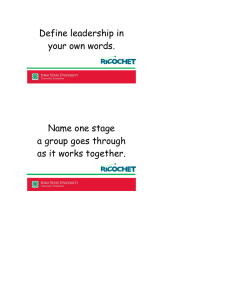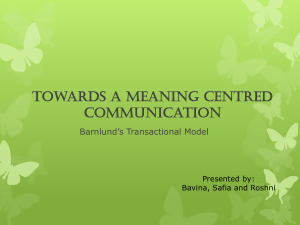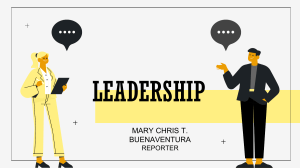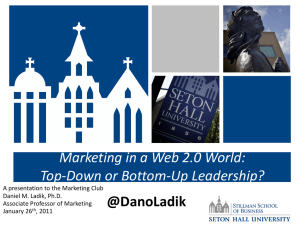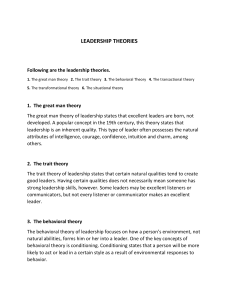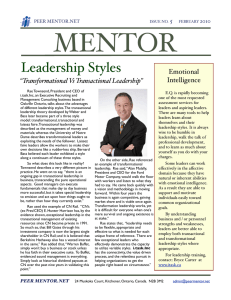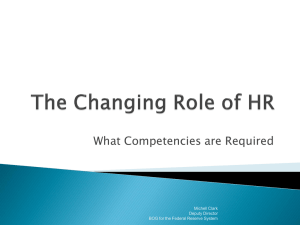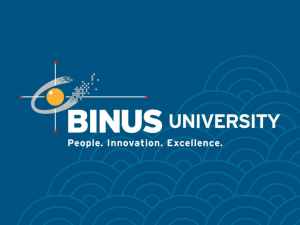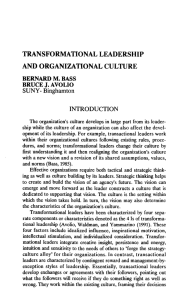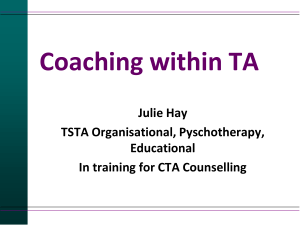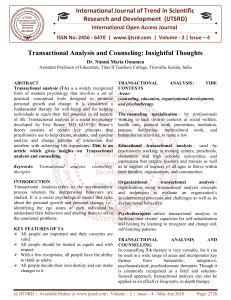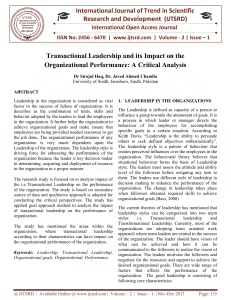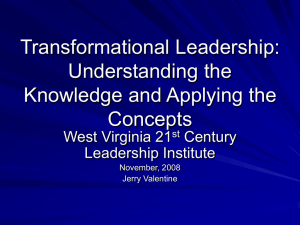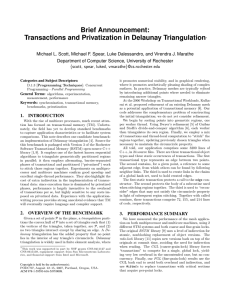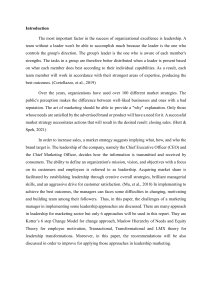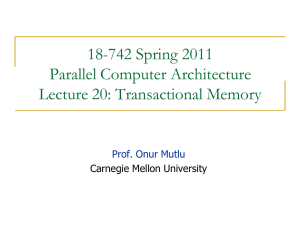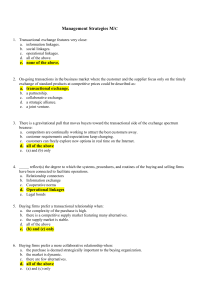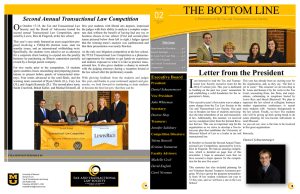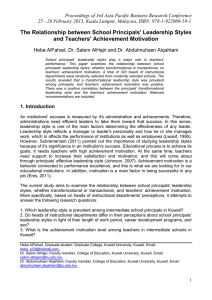09272013-80019 410.956k
advertisement
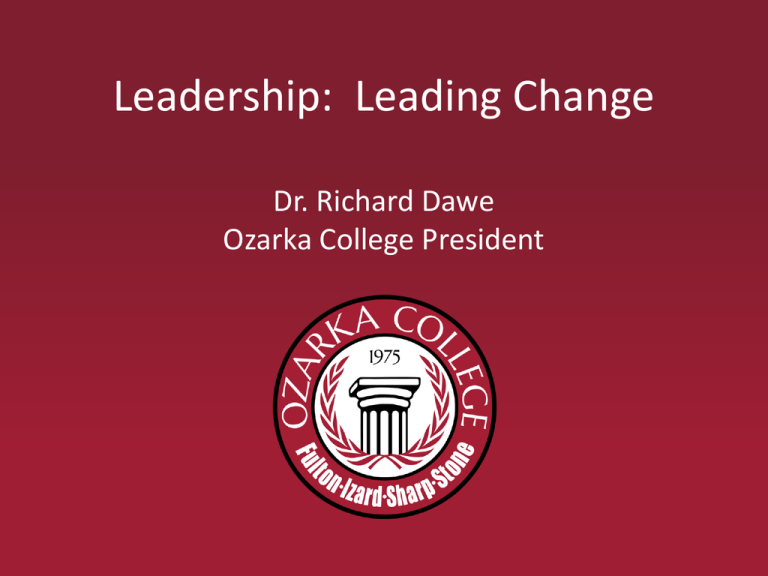
Leadership: Leading Change Dr. Richard Dawe Ozarka College President Overview • • • • • • • Leadership Defined Styles of Leadership Transformational vs. Transactional Leaders Organizational Culture Communication Leading Change Changing Culture Defining Leadership • Distinguishing Leadership from Management • Managers ‘do the right things’ -- leaders ‘do things right’ • Leaders influence; empower; communicate the vision; gain others ‘willing to follow’ • Are leaders born, or developed? Leadership Styles • • • • • • Charismatic Positional Servant Authoritative Team Builder Collaborative/Facilitative Transformational vs. Transactional • Costs and benefits to consider • Different organizational cultures and situations may require different approaches • Readiness and need for change Organizational Culture • Defined as: The way we do things around here • Examples: Family; Team; Strong; Weak; etc. • Must assess if an existing culture fits the needs of the organization…often takes many years to change Communication • • • • Must be appropriate to the task at hand Two way communication means is critical Do not leave anyone ‘out of the loop’ Don’t assume the process or system in use is effective • Be a good listener and respond Leading Change • • • • • Assessing the need for change Is the expected cost worth the desired outcome? Creating a sense of need or urgency Find supporters at all levels Look for possible ‘blockers’ inconsistent with your agenda • And…short term organizational pressure is often useful (otherwise the outcomes are often transactional/marginal) Leading Culture Change • Common errors in leading change (Kotter, 1996): – Failure to create a significantly powerful guiding coalition – Under-communicating the vision – Permitting obstacles (or persons) to block – Failure to create short term wins Leading Culture Change, cont. • May take as long as 7-8 years to change • Must first justify the need and urgency • May be unintended outcomes to a major change initiative • Assess; Unfreeze; implement the change; refreeze; assess outcomes • A case study example: Ozarka in recent years Words of Wisdom “The most dangerous leadership myth is that leaders are born – that there is a genetic factor to leadership. That’s nonsense; in fact, the opposite is true. Leaders are made rather than born. Warren Bennis
